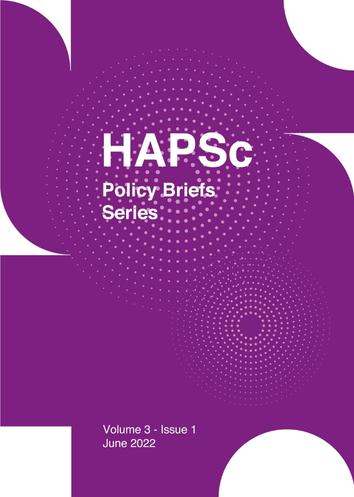Nudging As a Public Policy Tool: Exploring the Relationship Between Nudge and the Ability of Citizens for Rational Thought and Choice
Abstract
This paper presents a theoretical analysis of the use of nudge as a tool of governments in influencing people’s behaviour. It captures the emergence of nudge as a policy making tool and its meaning within the context of policy interventions. Then, the different conditions under which nudge effectively leads to citizens’ loss of their ability for choice and thought are examined, which are (i) referring to the choice of architects promoting their own interests, (ii) unconscious nudging, (iii) overuse of nudging and (iv) the issue of who gets nudged and its associated implications. To conclude, the summative assessment of nudge’s role in negatively influencing citizens’ ability for choice and rational thought while also providing comments for future analysis is also discussed. Overall, this paper critically examines the use of nudge as a policy tool for governments, adding to the existing public management and policy literature.
Article Details
- Zitationsvorschlag
-
Georgiou, P. (2022). Nudging As a Public Policy Tool: Exploring the Relationship Between Nudge and the Ability of Citizens for Rational Thought and Choice. HAPSc Policy Briefs Series, 3(1), 23–30. https://doi.org/10.12681/hapscpbs.30982
- Rubrik
- Articles

Dieses Werk steht unter der Lizenz Creative Commons Namensnennung 4.0 International. Authors retain copyright and grant the journal right of first publication with the work simultaneously licensed under a Creative Commons Attribution License that allows others to share the work with an acknowledgement of the work's authorship and initial publication in this journal.



